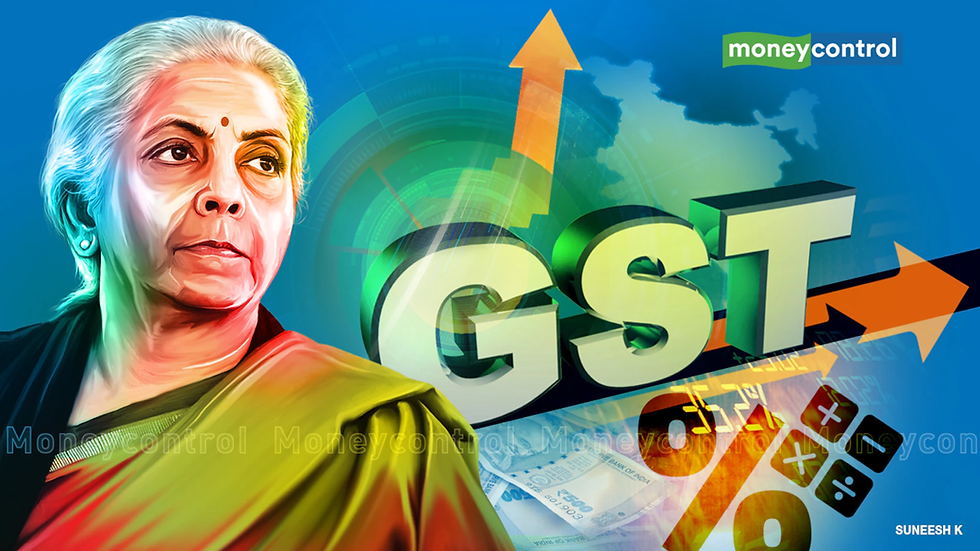An elixir and curse on humanity: Globalization
- Hindu College Gazette Web Team

- Jul 20, 2023
- 4 min read
guest article

image credits- spacestor
The concept of Globalization is encapsulated in a thin borderless membrane where there are no borders but “softer shells”. What do these ‘softer shells’ connote? Simply, interdependency or interconnectedness of products, services, capital, and even people within the co-existing border influences. Connectivity is a key aspect of globalization. Connectivity drives cross-border trade to maximize everyone's potential. However, interconnectedness carries tremendous inertia in each state, and it is precisely this interdependence in a politically unsteady globe that puts a poisonous shadow on the ordinary but globally integrated individual.
The moment hence beckons the question: Has globalisation gone too far? In some ways, yes. Particularly over the last ten years, the backlash against globalisation has fuelled populist movements all around the world which in many cases led to Government measures that impede international trade in order to support home sectors are referred to as protectionism. However, Protectionist policies are typically implemented to increase economic activity within a home economy. A lot of people have been suffering as the economy is changing and some local labour markets are facing competition from overseas, which implies that globalisation exacerbates income inequality and gaps between individuals in a society with higher and lower levels of education. For instance, the newly industrialized economies [NIEs] of Asia have done well, while Africa as a whole has fared in poverty. As a result of ongoing pressure from globalization, wages for unskilled workers have also been dropping. The wage growth in Bangladesh declined to a seven-year low of 6.06 percent in the last fiscal year, highlighting the struggle low-paid workers are facing owing to the higher cost of living. This strains globalization for fostering a climate where employees are exploited in nations that can't afford enough protection. The working condition of people in the supply chain is appalling. Although there are up to four million people employed in Bangladesh’s garment Industry, the average worker earns less in a month than a U.S. employee earns in a day.
AS A POISON\CURSE TO HUMANITY
To best explain the working of globalization, Gourincha’s earthquake analogy is perhaps the most appropriate. According to the analogy, the Russo-Ukrainian war reveals a sudden shift in underlying “geopolitical tectonic plates.”
Imagine the two countries as tectonic plates that rub up against each other to create an earthquake. The earthquake creates seismic waves radiating from the epicenter and impacting economies far and wide. The conflict between Russia and Ukraine, which is the epicenter of the earthquake, has made the geopolitical tectonic plates that make up the globalised economy drift.
A World Bank [2022] report on the Impact of the War in Ukraine on Global Trade and Investment shows that world trade will drop, lowering global GDP. Input shortages and price increases are the results of supply chain disruptions on a global and regional scale. Inputs like ignition cables for automobiles, neon gas for semiconductors, and iron ore for steel mills are major exports from Ukraine. Particularly dependent on Russian metals, chemicals, fertilisers, and other commodities are also businesses that produce electronics, machinery, transport equipment, and food products attenuating the negative effects of the war. Disruptions in world trade and investment will curb growth in developing countries and add to price pressures. The danger is that these plates will drift further apart, fragmenting the global economy into distinct economic blocs with different ideologies, political systems, technology and technology standards.
AS A CURE/ELIXIR TO WAR
At the same time, The earthquake also has a ripple effect on other tectonic plate plates, a continuous effect. This ripple effect then creates magnanimous bonds. Magnanimous here refers to the establishment of the highest statistical probability of the creation of a balance of power, in easy words dependency i.e. multipolarity as interdependence. This prevents states from violently warring with one another by defusing tensions, protecting global value chains from future upheavals and vying desire for dominance.
To be clear, I am not arguing against globalization. I doubt that ‘de-globalisation’ is even possible. Instead, my case is to recognise that curse and elixir are two sides of the same coin that is globalisation.
We need to focus on and understand that if we want to prevent the ultimate unravelling of our global economic system instead of reserving currencies with tragedies of a unipolar world which might end up erupting into a war, We need to acknowledge and decode the importance of the application of regulatory tools to ensure mutually beneficial economic growth. What would this entail? Firstly, the regulation of global finance is to make sure it is aligned with broader societal goals. This will incur a regulatory cost. However, incurring a manageable regulatory cost is a worthwhile trade-off for protections and assurances that empower the policymakers of developing countries to make calculated and context-oriented decisions. Second, the international community should work to assist the poorest nations integrate into the global economy, by bolstering the international financial system. The globalisation of markets and trade cannot and should not be seen as ends in themselves. They are a breeding ground for economic development and the creation of magnanimous bonds bringing out a way to improve our lives and make them more stable, egalitarian, and ecologically friendly. Hence geopolitical “friendship” is not only politically sailable but can also be made economically sensible and socially viable with the correct regulatory mechanisms and we’re currently in the process of globalisation, the globalised world is unprecedented.
By: Shrestha Bisht
I'm Shrestha Bisht, a second-year student from Kirori Mal College currently pursuing political science honours. I reside in Delhi, also known as the "smog city." I am passionate about public administration, literature and global politics. I am also a national level badminton player.
References:
https://www.thedailystar.net/business/economy/news/wage-growth-falls-7-year-low-fy22-3088221
https://education.nationalgeographic.org/resource/effects-economic-globalization/
https://www.imf.org/en/Publications/fandd/issues/2022/06/shifting-geopolitical-tectonic-plates-straight-talk






Comments